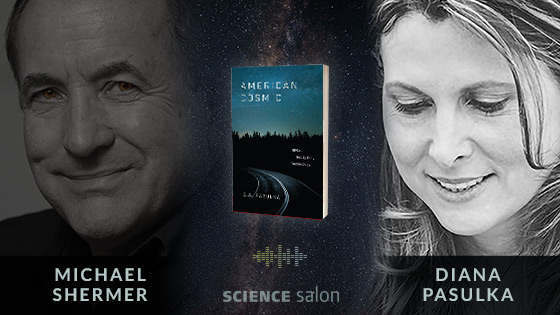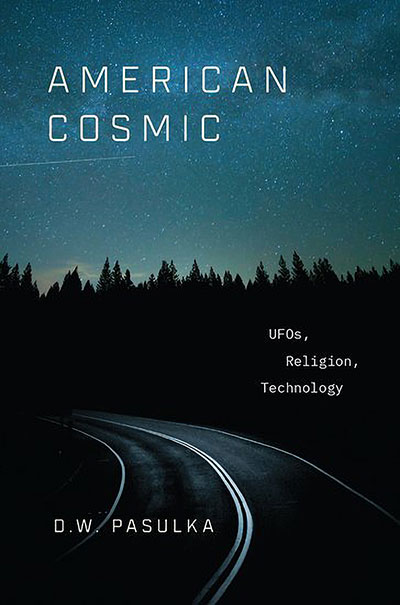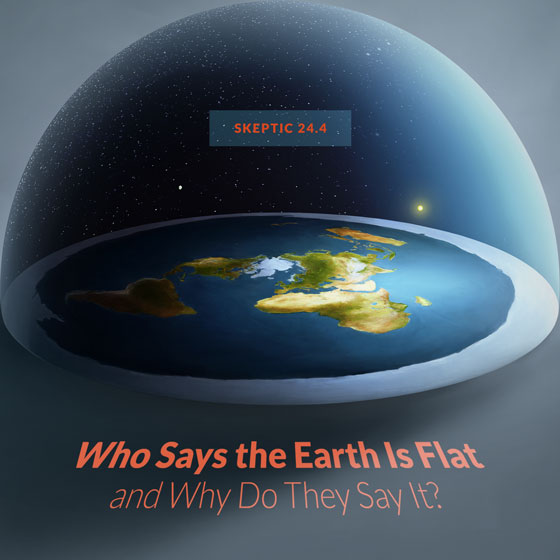SCIENCE SALON # 105
Michael Shermer with Diana Pasulka — American Cosmic: UFOs, Religion, Technology
More than half of American adults and more than 75 percent of young Americans believe in intelligent extraterrestrial life. This level of belief rivals that of belief in God. American Cosmic examines the mechanisms at work behind the thriving belief system in extraterrestrial life, a system that is changing and even supplanting traditional religions. Over the course of a six-year ethnographic study, Dr. Pasulka interviewed successful and influential scientists, professionals, and Silicon Valley entrepreneurs who believe in extraterrestrial intelligence, thereby disproving the common misconception that only fringe members of society believe in UFOs. She argues that widespread belief in aliens is due to a number of factors including their ubiquity in modern media like The X-Files, which can influence memory, and the believability lent to that media by the search for planets that might support life. American Cosmic explores the intriguing question of how people interpret unexplainable experiences, and argues that the media is replacing religion as a cultural authority that offers believers answers about non-human intelligent life. Pasulka and Shermer also discuss:
- the definition of religion
- fictional religions and historical religions
- Jediism as a religion
- new religious movements and cults
- Mormonism and Christianity
- Scientology as a UFO religion
- how to be spiritual without religion
- Nietzsche, Jung, and archetypes
- scientific truths and mythical truths
- astronomical observatories and medieval cathedrals
- UFOs as Sky Gods for Skeptics; aliens as deities for atheists, and
- the rise of the Nones and the future of growth of new religions.
Diana Pasulka is a professor of religious studies at the University of North Carolina Wilmington, and chair of the Department of Philosophy and Religion. Her current research focuses on religious and supernatural belief and practice and its connections to digital technologies and environments. She is the author and co-editor of numerous books and essays, the most recent of which are Believing in Bits: Digital Media and the Supernatural, co-edited with Simone Natalie and forthcoming from Oxford University Press, and Posthumanism: the Future of Homo Sapiens, co-edited with Michael Bess (2018). She is also a history and religion consultant for movies and television, including The Conjuring (2013) and The Conjuring II (2016).
Listen to the podcast via Apple Podcasts, Spotify, Google Podcasts, Stitcher, iHeartRadio, and TuneIn.
Check Us Out On YouTube.
Science Salon • Skeptic Presents • All Videos
You play a vital part in our commitment to promote science and reason. If you enjoy the Science Salon Podcast, please show your support by making a donation.
THE GREAT COURSES PLUS
Get unlimited access free for an entire month!
They say knowledge is power. Thanks to The Great Courses Plus we get to tap into this power with just a click. With this streaming service, unlock unlimited access to objective, reliable, fascinating information on virtually any subject. Learn from the brightest minds around the world, benefit from their years of experience and unique insight to help formulate our own knowledge and perspectives, so we can transform from a student into a master! With over 40 thousand 5-Star Reviews on The Great Courses Plus, you’re guaranteed to find compelling content.
Tap into this power of knowledge! Join me — and thousands of other learners — and sign up for The Great Courses Plus. For a limited time only, my listeners will get unlimited access completely free for an entire month! So don’t wait, sign up to start your Free Month Trial today. Simply use my special URL: thegreatcoursesplus.com/salon.
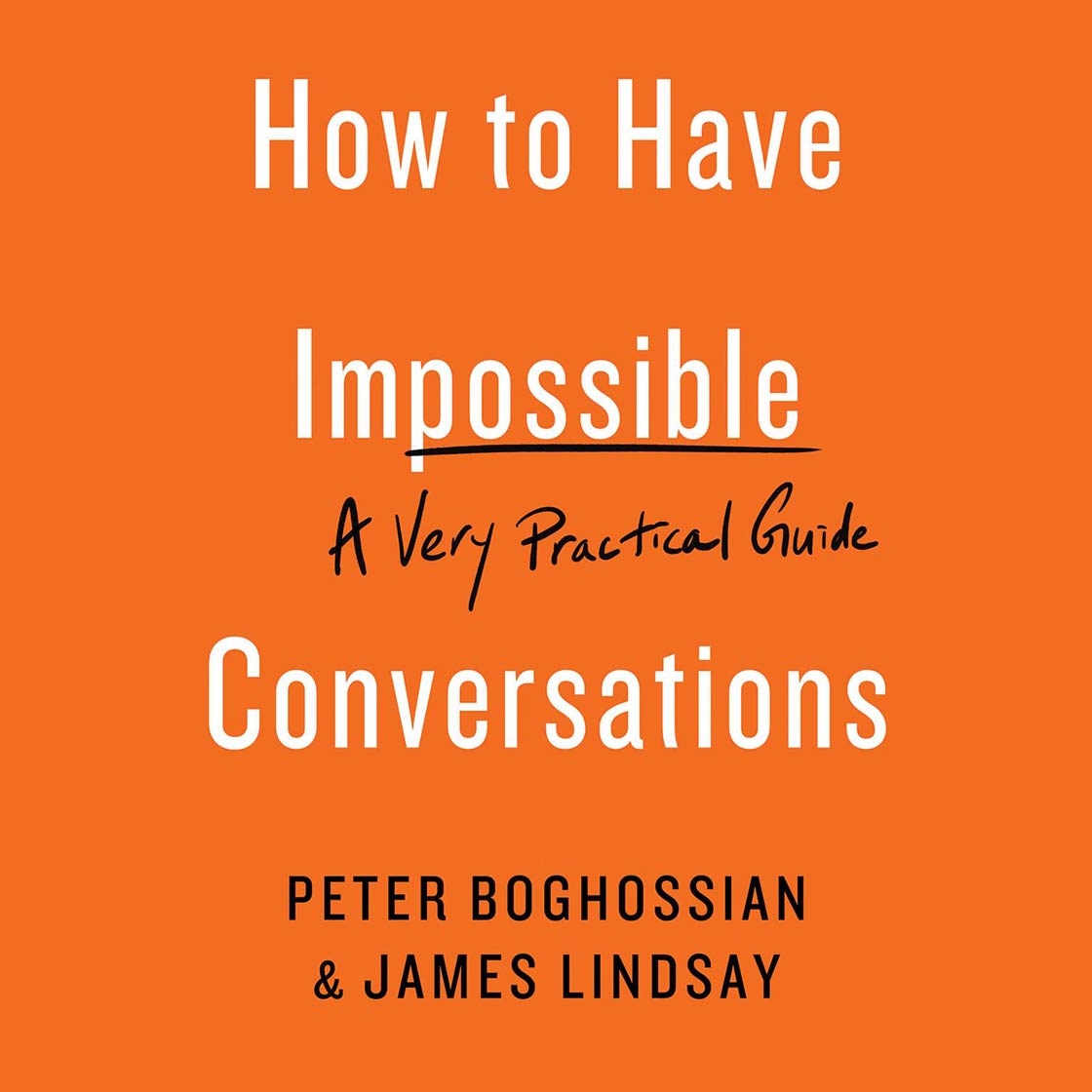
The following excerpt is from a book about how to communicate effectively with people who hold radically different beliefs. We live in a divided, polarized era, and we’re not talking with each other. The repercussions of this are vast and deep, including the fear of speaking openly and honestly, an inability to solve shared problems, and lost friendships.
How to Navigate Contentious Conversations
IIn this excerpt, taken from Chapter 5 of How to Have Impossible Conversations: A Very Practical Guide, we provide some tools to help people navigate contentious conversations.
Keep Rapoport’s Rules
The Russian-born American game theorist Anatol Rapoport had a list of rules for offering disagreement or criticism in conversations. These rules are now known as Rapoport’s Rules, and they have been described by the American philosopher Daniel C. Dennett as “the best antidote [for the] tendency to caricature one’s opponent.” Dennett neatly summarizes Rapoport’s Rules in his book Intuition Pumps and Other Tools for Thinking. If your goal is to engage someone successfully, take these steps in this order:
- Attempt to re-express your target’s position so clearly, vividly, and fairly that your target says, “Thanks, I wish I’d thought of putting it that way.”
- List any points of agreement.
- Mention anything you have learned from your target.
- And only then are you permitted to say so much as a word of rebuttal or criticism.
Adhering to Rapoport’s Rules can be difficult, especially in a heated discussion, but it will significantly advance the civility and effectiveness of your conversations.
Avoid Facts
Christian fundamentalist and Biblical Creationist Ken Ham is responsible for the Ark Encounter, a 510-foot (155 meters) full-size Noah’s ark in Grant County, Kentucky. Ham is the perfect example of someone who cannot be swayed by facts. He believes the Genesis flood narrative literally and incorrigibly. In a public debate with science popularizer Bill Nye in February 2014, both Ham and Nye were asked what would change their minds about creationism and evolution. Nye said “Evidence,” and Ham said, “Nothing.” Ham has explicitly stated that there’s no evidence that would cause him to revise his beliefs. Ham is not missing a piece of evidence that would cause him to change his mind; rather, he cannot be swayed by evidence, including rigorous peer-reviewed scientific studies. For him, the issue is settled. To engage someone like Ham, you have to avoid facts.
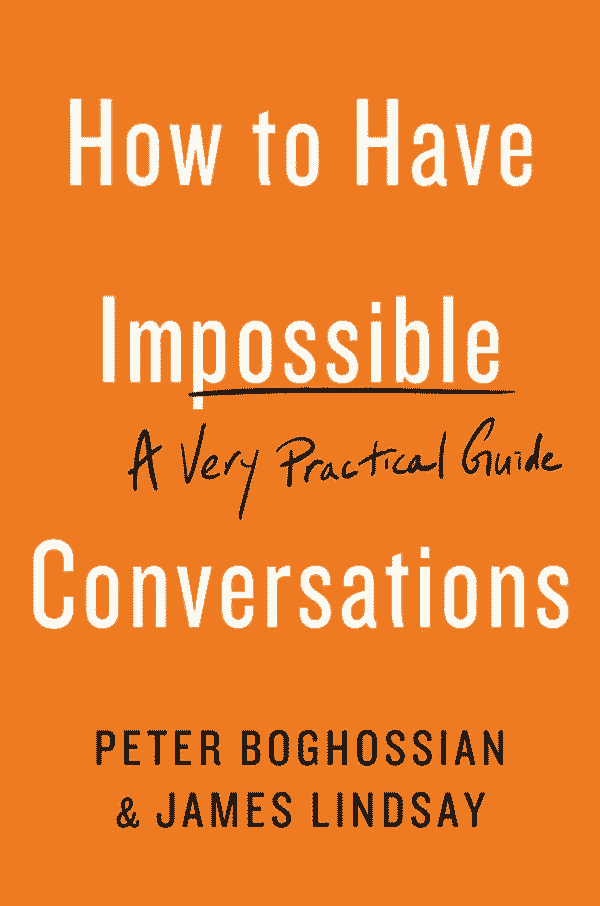
Excerpted from How to Have Impossible Conversations: A Very Practical Guide, by Peter Boghossian and James Lindsay, published by Da Capo Lifelong Books, an imprint of Perseus Books, LLC, reprinted with permission. Copyright © 2019 by Peter Boghossian and James Lindsay.
This certainly does not mean that you should disregard evidence or encourage others to do so. It does mean that introducing facts into a conversation could backfire unless done at the correct moment and with great care. Few people form their beliefs on the basis of rigorous consideration of reasoned arguments. Complicating matters, most people believe they do have evidence supporting their beliefs because they consider only those points that support what they already believe.
As well, the backfire effect redoubles a believer’s commitment to her beliefs, increases your frustration, and often results in a wasted conversational opportunity. Facts are the main culprit in eliciting the backfire effect.
So, what should you do? Here are a few tips […]


